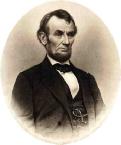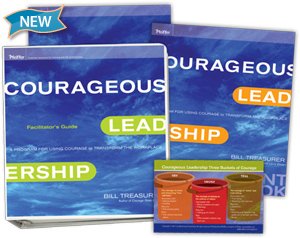|
Team Leadership
leadership is the cornerstone to a team’s success. A strong team leader can lead the team to high performance level. Leaders were many different hats to motivate their team The team leader needs to focus on these four key concepts: 1. Common Goal: The team leader needs to define the goal and motivate the team.
2. Synergy: Team leadership needs to use all the talents, skills and abilities of each team member to reach the full potential of the team. Group strength is more important than, than individualism.
3. Ownership: Teams must be committed and own the team’s goal and vision. The leadership has influence over a team’s reaction the goal.
4. Results: The team leader must keep the team accountable for the results and performance of the team. Introduction to Team Building Techniques helps increase motivation, promote unity, strengthen corporate and team culture by using proven team building activities. Team leaders can develop their leadership skills by attending a local community college. I would recommend you take a public speaking, management, and human resources classes. You can read biographies about famous leaders. I like to read books about famous coaches. Volunteer for leadership positions with your local non-profit organizations. Find a mentor; ask him or her to help you. Leadership is an on-going process. Embrace life-long learning. We can learn leadership skills form Abraham Lincoln.
You've got to be tenacious to become a team leader. You need to lead your team to a vision and goal. Whenever, you have had a tough day, think about Abraham Lincoln. Man, you'd have to be tough to run this marathon of failures and/or absolutely believe that you are on the right track. Look at all the setbacks of the greatest USA President. He preserved. He led the USA during the Civil War. Check this time line out: Failed in business - 1831 Lost election for legislature - 1832 Failed again in business - 1834 Sweetheart died - 1835 Nervous breakdown - 1836 Lost second political race - 1838 Defeated for Congress - 1843 Defeated for congress - 1846 Defeated for congress - 1848 Defeated for US Senate - 1855 Defeated for vice President - 1856 Defeated for US Senate - 1858 Elected President - 1860
So, the next time you feel like you are having a tough day. Just look at the career timeline of Honest Abe If your team is struggling then , ask the team these self –evaluation questions. 1. Which team member brings the team members together? 2. Who helps the team make decision? 3. Who keeps the team on task? 4. Who keeps the team in positive attitude and mood? 5. Who helps the team change? 6. Who motivates the team? 7. Who provides the feedback for the team? 8. Who encourages the team when things are tough? Debrief the team and ask team to come up with solutions to resolve the team leadership issues.
Teamwork| Motivation| Quotes| Outdoor Teambuilding| Coaching|
Courageous Leadership
A Program for Using Courage to Transform the Workplace We have high and often conflicting expectations of leaders. Be reasonable but passionate. Decisive but inclusive. Visionary but explicit. Powerful but humble. Add to that emotionally intelligent, caring, impartial, people-oriented, and of course, profit-driven. The list is so long that it often leaves leaders scratching their heads, thinking: how am I supposed to be all of these things at once? The answer is courage. It's what enables a leader to face tough times and step up to the plate. It is what gives leadership its backbone. Courageous Leadership is a comprehensive training package that introduces courage-building, a practice that guides leaders to meet challenges more readily, embrace change more fully, and speak more assertively. Courage-building is all about developing capable and confident leaders who can transform organizations. A combination assessment, workbook, and workshop, Courageous Leadership gives leaders at all levels the foundational skills and abilities they need to become more courageous. Learning Outcomes: Understand the impact fear has on personal and organizational performance. How It Works: The participant workbook offers tips and techniques for raising one's scores in the area that would benefit from the application of more courage. The Courageous Leadership workshop introduces people to a specific understanding of courage, illustrates how they can become more courageous, and demonstrates the vital role courage has in the workplace and our lives. Legacy Leadership Competency Inventory Growing tomorrow’s leaders today Dr. Jeannine Sandstrom and Dr. Lee Smith Most people think the term “legacy” is something you leave behind when you’re gone. But what if you were living your legacy now? What if your vision for the future was evident in everything you do, every day? Welcome to Legacy Leadership, a philosophy, model, and proven process for bringing out individuals’ best, developing other leaders in the organization, establishing leadership culture, and positively impacting the bottom line. In a nutshell, it’s about building the foundation for real-time legacy in today’s organizations. What makes Legacy Leadership different from other programs is that it offers a compelling set of leadership practices that are designed to perpetuate a cycle of leadership development. It delivers a comprehensive framework of practices, behaviors, attitudes, and values that address every aspect of successful leadership – regardless of industry, experience, or organizational role. Legacy Leadership is based upon The 5 Best Practices of the “being” and “doing” of leadership:
1. Holder of Vision and Values 2. Creator of Collaboration and Innovation 3. Influencer of Inspiration and Leadership 4. Advocator of Differences and Community 5. Calibrator of Responsibility and Accountability
Learning Outcomes: Understand that legacy is created by leaders, who in turn develop other leaders.Learn The 5 Best Practices Model and the associated 10 Critical Success Skills. Top 3 strengths and challenges in each of the 5 Best Practices How to shift one’s thinking to serve other’s first, then oneself. Develop an action plan for becoming a Legacy Leader. How it Works:
Legacy Leadership that offers comprehensive learning tools for both the individual and the facilitator, including an Online Self Assessment, Online Multi-Rater Assessment, Participant Workbook, Facilitator Guide, and a One-Day Workshop. Combining the results of the learning instrument together with relevant personal experiences and the instructor-led program, individuals are well equipped to formulate an actionable development plan for becoming a Legacy Leader.
About the Authors
Dr. Jeannine Sandstrom Dr. Jeanine Sandstrom, Master Certified Coach and CEO of CoachWorks International, is a globally experienced Executive Coach who partners with C-Suite executives to optimize leadership performance. As a proponent of life-long learning, she believes in constant training and conditioning to be prepared for life’s decisive moments and biggest opportunities. Jeannine employs expert leadership training methodology to condition executives to perform at the top of their game. She advises on complex strategic matters and partners with leaders in taking concrete actions for immediate results. This approach encourages timely breakthroughs, improved performance and bottom line results.
Dr. Lee Smith
Dr. Lee Smith
|











